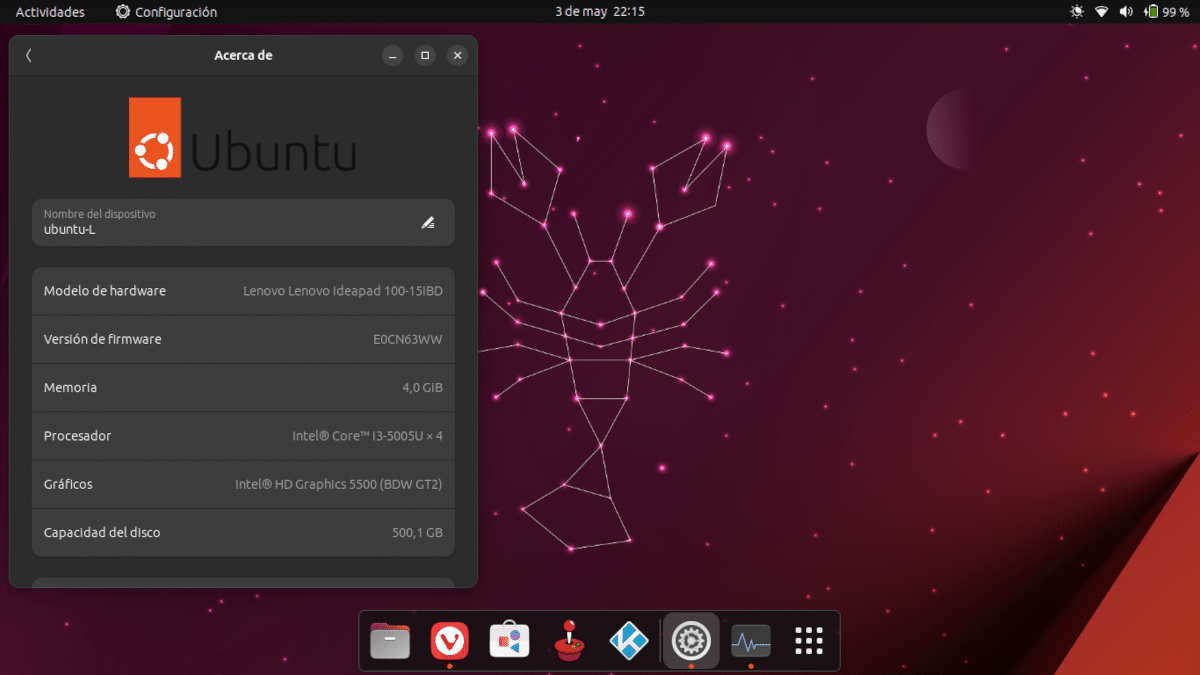
When I had to decide what my first computer would be like, the choice was more or less simple: an unbranded tower with the maximum hard drive, processor, and RAM. The operating system, although I asked for dual-boot, I did it late (when it was already delivered to me) and I got used to using Windows. Later I bought an iMac, and it was also fixed. Laptops used to be expensive and less powerful, but that's not so much anymore, and now I prefer computers that I can use anywhere. I currently have two, one older and one newer, and it seems Canonical wanted to give my old Lenovo a second youth with Ubuntu 23.04.
My Lenovo is very close to the third decade of the 2000s. With an Intel I3, hard drive and 4GB of RAM, little can be asked of it. It never worked well with Windows, but it did work decently with the latest versions of Ubuntu to use Unity and the first since its return to GNOME. But everything started to change in the last couple of years. I put dual startup to cover all the possibilities, it costs a lot to move Windows 11 and, well, with Ubuntu 22.04... it moved, let's say. Later, when Fixed issues with Kodi, I decided to update to 22.10, and the move turned out more bad than good.
Call it Ubuntu 23.04, call it Linux 6.2, call it GNOME 44…
The truth is that since I went up to kinetic kudu I have used my Lenovo on a few occasions. My media center is now the Raspberry Pi, with LibreELEC for media and RetroPie for occasional gaming, so I didn't fully test performance with the older version of Ubuntu. Yes, I did it several times, and probably because of the unattended updates, those updates that are applied automatically for security above all, that Lenovo took a long time to even respond to my orders with solvency, maybe more than an hour.
Just yesterday, after I had to rearrange some furniture in a room in my house that had just been painted, I picked up that laptop without much hope and upgraded to Ubuntu 23.04 straight away, just like I had done with 22.10. The following GIF perfectly defines my face when I begin to interact with my new installation:
What happened? I do not have the answer. Taking into account that with 22.04 the team moved more or less well, it is likely that there was something not so well managed in 22.10 or that when updating something directly it did not go as well as it could have. It may also have to do with performance improvements from GNOME 44, and also with the kernel, Linux 6.2. Speaking of management, maybe unattended updates are being handled better, but Kinetic Kudu wasn't doing well for me even when they weren't running in the background.
On horseback…
On Twitter I read that the official Ubuntu account puffed out its chest mentioning that performance had improved after the release of Ubuntu 23.04. That tweet was responded to by the famous medium OMG! Ubuntu! saying something like "until you see that the benchmarks in video games are worse", but that tweet appears to have been deleted. The point is that the official information does report performance improvements, but this is a novelty that has little new since, I think, GNOME 41. In GNOME 40 the spectacular change was made that made us see the desktop in a different way, and it was from the next version when they began to polish things and make everything perform better.
Therefore, I don't know what it is, but it is. It may be a placebo effect after a bad update to Kinetic Kudu, in fact my first ever update from one version of Ubuntu to another without starting from scratch; it could be the kernel, it could be GNOME 44 Or it could be the personal tweaks that Canonical makes to pure GNOME, but the truth is that right now I have a laptop alive and kicking that seemed to have thrown in the towel.

Thank you for sharing your experience, the truth seems to me to be excellent news and I hope that the products derived from this distro come out just as polished.